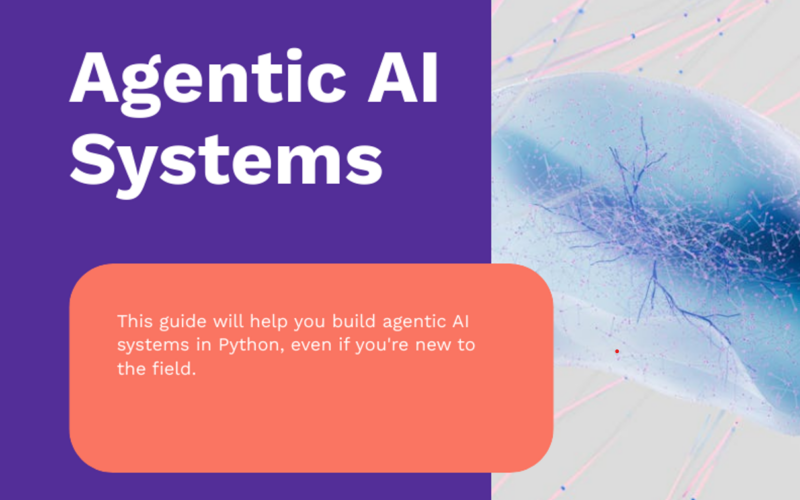It starts with a simple question: “Can I help you find anything?”
But this isn’t a sales associate speaking—it’s your website, your app, even your email campaigns. And unlike human staff, it never clocks out, never forgets a customer’s name, and never misses an opportunity to turn browsers into buyers.
This is the new reality of retail, where AI agents work silently in the background:
- Watching for that moment when a customer hesitates over shipping costs
- Remembering every item a shopper has ever browsed across all devices
- Anticipating inventory shortages before they cost you sales
The stores and sites thriving today aren’t just selling products—they’re using AI to create experiences so seamless, customers don’t even notice the technology. They just notice how easy it is to buy.
What follows isn’t about “the future”—it’s about what’s working right now in dressing rooms, shopping carts, and checkout lines.
The only question is: Are you listening to what these AI agents can tell you about your customers? If not, don’t worry—we’ve got you covered!
In this blog, we’ll show you exactly how AI agents can transform your business and why your competitors might already be ahead of the game.
But What Exactly Are AI Agents?
AI agents are more than just chatbots or recommendation engines—they’re autonomous digital employees that learn, adapt, and act on your behalf. Imagine a team that works 24/7 to:
- Understand each customer’s unique preferences and behaviors
- Decide the best action to take in real-time (like offering a discount or suggesting an alternative)
- Improve their performance with every interaction
Unlike traditional software that follows rigid rules, AI agents get smarter the more they’re used—meaning your store actually improves between shifts, after hours, and during peak seasons when you need it most.
From the personalized stylist that knows your customer’s taste better than they do, to the warehouse supervisor that predicts stock needs before the manager even checks reports.
Shoppers Embrace the AI Era
The shift to AI in retail isn’t just happening on the business side—it’s already underway with shoppers too. In fact, 39% of shoppers, and a whopping 54% of Gen Z, are using AI to help them discover products. Gen Z shoppers are 10 times more likely than baby boomers to say they frequently use AI for this.
When it comes to AI agents, shoppers are eager to see them help with things like optimizing loyalty points, managing returns, and providing customer service. Gen Z is especially open to AI agents taking the lead, with 63% saying they’d be interested in agents purchasing items for them.
You know what AI agents are and how shoppers are ready to embrace it—so how are they actually making a difference in retail and e-commerce?
Let’s take a look at their role in the industry!
The Role of AI Agents in Retail
75% of retailers say AI agents will be essential to compete in the future. So, what’s driving this shift? These are the reasons.
1. Know Your Customers Better Than Ever
- Track browsing behavior across devices: AI agents can track a customer’s journey across multiple devices—laptops, smartphones, and tablets. This allows businesses to understand their preferences and behaviors, even if the customer switches devices mid-purchase.
Example: A customer browses shoes on their phone but buys them later on their laptop. AI remembers their interest and suggests related products across both platforms.
- Remember past purchases and preferences: AI agents remember a customer’s past purchases, preferences, and browsing history. This enables businesses to offer a more personalized experience every time the customer returns, building a deeper relationship with the brand.
Example: If a customer frequently buys organic skincare products, AI will suggest new arrivals in that category or similar products they might like.
- Predict what they might want next: By analyzing past behavior and market trends, AI agents can predict what a customer might want in the future, providing a highly tailored shopping experience.
Example: If a customer regularly buys running shoes every six months, AI will suggest the newest models when their buying cycle is about to start.
2. Never Miss a Sales Opportunity
- Send personalized restock alerts: AI agents notify customers when a product they’ve shown interest in is back in stock, ensuring that they don’t miss out on the items they wanted.
Example: A customer adds a product to their wishlist, and AI sends them an email as soon as it’s available again, bringing them back to complete the purchase.
- Suggest perfect add-ons at checkout: AI agents can suggest complementary items during checkout, increasing the average order value. These suggestions are based on customer data and buying patterns, ensuring they are relevant and valuable.
Example: A customer buying a camera might be offered accessories like memory cards or a carrying case at checkout, making it easier to add to their cart.
- Recover abandoned carts with tailored offers: AI can help reduce cart abandonment by offering personalized discounts or special deals tailored to the items in a customer’s abandoned cart.
Example: A customer leaves a high-end blender in their cart, and AI sends a 10% off offer, prompting them to complete the purchase.
3. Keep Your Business Running Smoothly
- Automatically adjust inventory levels: AI agents can analyze sales trends and customer demand to automatically adjust inventory levels in real-time, ensuring stock is always available without overstocking.
Example: If a hot product starts selling out faster than expected, AI automatically orders more stock or adjusts the product display to prioritize other best-sellers.
- Flag potential supply chain issues: AI can predict potential disruptions in the supply chain, helping businesses prepare and adapt. If there’s a delay in shipping or a shortage in raw materials, AI can alert managers before it becomes a bigger issue.
Example: If a key supplier has a delay, AI can suggest alternative suppliers or adjust delivery timelines to avoid customer dissatisfaction.
- Optimize pricing in real-time
AI agents can adjust product prices in real-time based on factors like demand, competitor pricing, or inventory levels. This ensures your pricing is always competitive while maximizing profits.
Example: During peak shopping seasons like Black Friday, AI can automatically lower prices on specific items to remain competitive, while raising prices on limited-stock products to increase profit margins.
We’ve seen how AI agents can improve your retail business—now let’s break down the types of AI agents that are making it all happen, from chatbots to smart inventory managers.
4. Improve Customer Engagement with AI Chatbots
AI-driven chatbots are transforming how businesses engage with customers, offering real-time support and creating smoother shopping experiences:
- 24/7 customer support: AI chatbots provide customers with instant responses, handling inquiries ranging from product availability to order status and returns. With their ability to handle common questions, they save time for both customers and support teams.
Example: A customer asks a chatbot for the status of an order placed a few days ago. The bot immediately fetches the tracking information, giving the customer real-time updates without the need to contact customer service. - Guided shopping experiences: AI chatbots can provide personalized product recommendations based on a customer’s preferences or previous purchases, guiding them toward items that align with their needs and boosting sales.
Example: A chatbot recommends products based on a customer’s past browsing history, offering suggestions based on their interests and prompting them to complete the purchase. - Natural language processing (NLP): Modern AI chatbots now use NLP to understand complex inquiries and respond in more human-like ways, making the experience feel natural and seamless for the customer.
5. Use the Power of Visual Search in Retail
AI’s role in visual search is rapidly gaining popularity, enabling customers to find products using images instead of words:
- Image-based product discovery: Customers can upload photos of items they like, and AI algorithms will search the retailer’s inventory to find visually similar products. This makes it easier for customers to find the exact product or similar alternatives that match their preferences.
Example: A shopper sees a pair of shoes they like but doesn’t know the brand. They upload a photo of the shoes to the retailer’s app, and the AI identifies the closest match in the retailer’s catalog. - Enhanced user experience: Visual search enhances the user experience by allowing customers to find items faster and more efficiently. This is particularly useful for fashion and home decor, where customers often have specific aesthetic preferences that are easier to express through images than text.
6. AI-Driven Fraud Prevention and Security
As eCommerce grows, so does the need for robust security. AI is now playing a pivotal role in protecting both businesses and customers:
- Fraud detection: AI can analyze transaction patterns in real-time, identifying suspicious activity and preventing fraudulent transactions before they happen. By continuously learning from past data, AI systems become increasingly accurate at spotting fraud attempts.
Example: If a credit card is being used for purchases across multiple locations in a short period, AI flags the activity as potentially fraudulent, preventing the transaction from going through. - Enhanced customer authentication: AI tools like biometric recognition, voice authentication, and two-factor authentication enhance security by adding an extra layer of protection, reducing the risk of account hijacking or unauthorized transactions.
Example: A customer logging into their account is prompted to verify their identity using facial recognition, ensuring secure access without relying on passwords alone. - Behavioral biometrics: AI can analyze a customer’s unique online behavior—such as how they type, click, or move the mouse—to build a profile that helps detect anomalies in behavior. If suspicious activity is detected, AI can trigger additional security measures.
7. Dynamic Pricing Models
Dynamic pricing models leverage AI to adjust product prices based on real-time data, market trends, demand, and competitor analysis. Here are seven popular dynamic pricing models used in retail and eCommerce:
- Time-Based Pricing: Prices fluctuate depending on the time of day, week, or season. This model is effective for industries with seasonal demand or time-sensitive products.
Example: Airlines use time-based pricing, offering cheaper tickets when booked well in advance and higher prices closer to the flight date.
- Demand-Based Pricing: Prices are set based on current demand levels for a product. High demand can trigger price increases, while low demand leads to discounts or promotions.
Example: During peak shopping seasons like Black Friday or Cyber Monday, AI-powered systems automatically increase prices on popular items due to high demand.
- Geographic Pricing
Pricing varies by location to reflect local market conditions such as purchasing power, demand, and local competition.
Example: Retailers may charge different prices for the same product in urban areas compared to rural areas, taking into account local economic factors.
8. Lead Generation with AI Agents
AI agents play a crucial role in automating and optimizing lead generation strategies. Here’s how they can boost lead acquisition and improve conversion rates:
- Chatbots for Initial Engagement: AI-driven chatbots engage visitors on websites or social media platforms by answering questions, qualifying leads, and capturing contact details in real time.
Example: A potential customer visiting an eCommerce site might interact with a chatbot that gathers information about their needs and preferences, qualifying them as a lead for follow-up.
- Predictive Analytics for Lead Scoring: AI analyzes data from various sources (website behavior, social media interactions, past purchases) to predict the likelihood of a lead converting into a sale.
Example: AI assigns a score to each lead based on their engagement level, sending higher-priority leads directly to the sales team while nurturing others through automated follow-up emails.
- Automated Email Campaigns: AI uses data to craft personalized email campaigns that target specific segments with tailored offers, keeping leads engaged.
Example: A lead who recently browsed a specific category on a website might receive an email with personalized product recommendations and a special discount.
- Voice Assistants for Lead Capture: With the rise of voice search, AI-powered voice assistants help engage customers, provide personalized product suggestions, and gather lead information through voice commands.
Example: A customer might use a smart speaker to inquire about a product, and the voice assistant captures the lead’s interest and transfers the details to the sales team.
- Lead Nurturing with AI: AI continuously nurtures leads by sending automated yet personalized messages based on their behavior, ensuring they remain engaged until they are ready to convert.
- Example: A lead who downloaded an eBook on SEO might receive a series of educational emails about digital marketing before being introduced to a paid offering.
9. Warranty Sales and Post-Sale Outreach
AI agents can drive significant improvements in post-sale engagement, including warranty sales and outreach efforts to enhance customer loyalty and increase sales opportunities:
- Automated Warranty Reminders: AI agents can automatically remind customers when their product warranty is about to expire, offering an easy way to extend the coverage.
Example: An AI-powered email or SMS message is sent to a customer reminding them about an expiring warranty, with a link to renew or purchase extended coverage.
- AI-Driven Upsell and Cross-Sell Opportunities: Post-purchase, AI can recommend complementary products or services, like extended warranties, insurance, or accessories.
Example: A customer buys a washing machine, and AI suggests purchasing an extended warranty and detergent packs, increasing the overall sales value.
- Customer Feedback and Loyalty Programs: AI collects feedback from customers post-purchase, segmenting them for loyalty programs or special offers based on their purchasing behavior and feedback.
Example: After a product purchase, AI asks for a review and invites the customer to join a loyalty program with special discounts for future purchases.
- Targeted Warranty Offers for High-Value Customers: AI analyzes customer profiles to identify those with a history of high-value purchases and offers them tailored warranty or service plans.
Example: A high-value customer who frequently buys premium electronics is offered a customized warranty plan that fits their usage patterns.
10. Reducing Failed Deliveries (RTO/NDR)
AI plays a significant role in reducing failed deliveries (Return to Origin – RTO, Non-Delivery Report – NDR) by optimizing logistics and customer communication:
- AI-Powered Address Validation: AI can validate addresses in real-time at the point of order to reduce the chance of incorrect or incomplete addresses, which are a primary cause of failed deliveries.
Example: AI checks and corrects customer addresses during the checkout process, ensuring the delivery address is accurate before the order is dispatched.
- Predictive Delivery Window Management: By analyzing customer behavior and historical delivery patterns, AI can predict the best delivery windows for customers, reducing failed delivery attempts.
Example: AI predicts that a customer is more likely to be available in the evening based on their previous delivery preferences and sets the delivery window accordingly.
- Geographic Route Optimization: AI optimizes delivery routes based on real-time traffic and weather conditions, ensuring that deliveries are made on time and minimizing delivery failures.
Example: AI dynamically reroutes delivery drivers around traffic congestion or roadblocks, improving delivery efficiency and reducing delays.
You can also read: Step-by-Step Guide on Building AI Agents for Beginners
Types of AI Agents in Retail
AI agents in retail play a crucial role in enhancing customer experiences and simplifying operations. So, here are the types of AI agents in retail:
Chatbots
AI-powered chatbots are the frontline agents handling customer inquiries 24/7. They answer questions, offer product suggestions, and even help complete purchases, ensuring customers never have to wait for a response.
Example: A customer asks a bot about store hours or product availability, and the chatbot responds instantly, improving satisfaction and saving time.
Recommendation Systems
These AI agents analyze customer behavior and preferences to recommend products that are most likely to interest them. They drive personalization, turning one-time shoppers into repeat customers.
Example: After browsing a jacket, AI suggests matching accessories or similar styles, increasing the chances of additional purchases.
Inventory Management Systems
AI agents help businesses keep track of stock levels, predict demand, and automate reordering processes. This ensures that popular items never run out and reduces overstocking on less popular products.
Example: AI alerts a retailer when a hot product is running low, ensuring timely restocking and preventing missed sales.
Pricing Optimizers
These agents monitor competitors’ prices, demand fluctuations, and stock levels to adjust pricing in real time. They help businesses stay competitive and maximize profits without manual intervention.
Example: During a flash sale, AI can automatically lower prices on specific products to attract more customers, while increasing prices on low-stock items to capitalize on scarcity.
Voice Assistants
AI voice assistants in retail allow customers to shop using voice commands, making the process faster and more convenient. These agents are becoming more common in smart homes and on e-commerce websites.
Example: A customer asks their voice assistant, “Order my favorite coffee beans,” and the system places an order with one simple command.
While AI agents offer incredible benefits, they’re not without their challenges.
Let’s explore some of the hurdles businesses may face when integrating AI into their operations.
Want to know what makes Agentic AI tick?
Check out the key architecture and components in our latest blog!
Challenges in Using AI Agents
While AI agents bring significant benefits, implementing them in retail comes with its own set of challenges:
AI agents can do a lot for retail businesses, but there are some challenges along the way. Let’s take a look at common issues and how to solve them:
Data Privacy and Security
Challenge: AI agents use a lot of customer data, which can raise privacy concerns. Retailers need to make sure they’re following laws like GDPR and keeping data safe.
Solution: Use strong encryption methods to protect data, make sure your AI systems follow the latest security standards, and be transparent with customers about how their data is used.
Integration with Existing Systems
Challenge: Many retail businesses use older systems that may not easily work with new AI technology. Connecting everything can be tricky.
Solution: Choose AI solutions that can easily integrate with your current systems. Start small, test the AI with one process first, and expand as things improve.
Cost of Implementation
Challenge: The upfront cost of AI can be high, especially for small businesses.
Solution: Look for AI tools that fit your budget. Consider starting with affordable, scalable AI options, and focus on getting quick wins to justify the investment.
Customer Trust and Adoption
Challenge: Some customers may not trust AI-powered systems or may be hesitant to interact with them.
Solution: Make AI interactions feel personal and human-like. Be transparent with customers about how AI helps them, and slowly introduce AI features so they get comfortable with it.
Ongoing Maintenance
Challenge: AI systems need constant updates and fine-tuning to stay effective. Without regular monitoring, their performance can drop.
Solution: Set up a maintenance plan with your AI provider to regularly check and update the system. This keeps AI running smoothly and ensures it adapts to changing customer needs.
As AI agents continue to evolve, the future looks bright for retail and e-commerce. While there are challenges to overcome, the potential benefits make it clear that AI will play an even bigger role in shaping the industry.
So, what’s next for AI agents in retail?
Future of AI Agents in Retail and E-commerce
The future of AI agents in retail and e-commerce is incredibly exciting. As AI technology advances, these agents will become even smarter, more intuitive, and more capable of understanding and predicting customer needs. Here’s what we can expect:
Deeper Personalization
AI agents will go beyond basic recommendations and offer hyper-personalized shopping experiences. They will not only predict what customers want, but anticipate future needs based on deep behavioral analysis.
Improved Customer Interactions
With advances in natural language processing (NLP), AI agents will have more human-like interactions, making conversations more natural and dynamic. This will help businesses offer more engaging and effective customer service.
Seamless Multi-Channel Integration
In the future, AI agents will seamlessly integrate across multiple platforms—whether online, in-store, or mobile—ensuring a consistent and connected shopping experience for customers.
Advanced Inventory and Supply Chain Management
AI will become even better at predicting demand, managing supply chains, and optimizing inventory in real-time, reducing waste and ensuring products are always available when customers need them.
AI-Driven Marketing
AI agents will play a crucial role in creating and executing marketing campaigns, with the ability to analyze customer data and adjust strategies in real-time for maximum impact.
Your Retail Business Needs Smarter AI Agents – Here’s How We Can Help
At Codewave, we specialize in developing AI agents tailored to meet the unique needs of your retail and e-commerce business. Our team of experts leverages AI technology to create intelligent solutions that improve customer experiences, streamline operations, and increase sales.
Here’s how our AI agent services can help:
- Personalized Customer Engagement: We build AI-powered chatbots and recommendation systems using Google Dialogflow and TensorFlow to create personalized, real-time interactions. These AI agents analyze customer behavior and offer tailored product suggestions, improving engagement and fostering loyalty.
- Efficient Operations: We build AI agents that automate key retail processes like inventory management, pricing optimization, and order fulfillment. By using Amazon Forecast for demand prediction, Pricemoov for dynamic pricing adjustments, and ShipBob for streamlined order fulfillment, we optimize your operations, reduce costs, and enhance efficiency.
- Seamless Integration: We build AI agents that seamlessly integrate with your existing systems like Shopify, WooCommerce, and Magento. Using REST APIs and Zapier, we ensure smooth communication between our AI solutions and your platforms. With the help of machine learning, our systems automatically adapt and improve integration, optimizing your business operations without disrupting current workflows.
- Data-Driven Insights: We create AI agents that provide valuable insights into customer behavior, sales trends, and inventory needs. By using Google Analytics and Tableau, we build solutions that analyze your data and deliver actionable reports to help you make smarter decisions and stay competitive.
[Book a free 30-minute consultation]
Up Next: 15 AI Tools for Ecommerce Growth
Codewave is a UX first design thinking & digital transformation services company, designing & engineering innovative mobile apps, cloud, & edge solutions.







